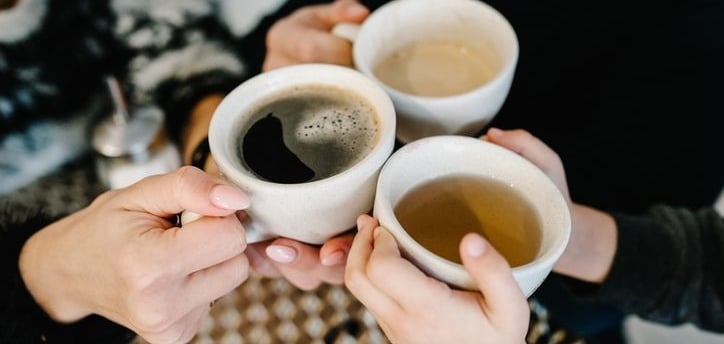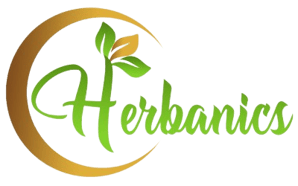Herbal Coffee vs. Commercial Coffee: Which is the Better Choice for You?
Discover the key differences between herbal coffee and commercial coffee in this detailed comparison. Learn about their health benefits, caffeine content, taste, and potential side effects to help you choose the best coffee option for your lifestyle. Whether you're looking for a caffeine-free alternative or the energizing boost of traditional coffee, we've got you covered!
Herbanics
4/7/20256 min read


Herbal Coffee vs. Commercial Coffee: Which One Should You Choose?
Coffee is a beloved beverage around the world, with many people turning to it for their daily caffeine boost. However, not all coffees are created equal. With growing health awareness and dietary trends, herbal coffee has emerged as a caffeine-free alternative to traditional commercial coffee. But what makes herbal coffee different, and how does it compare to the familiar brew that powers your day? In this comprehensive blog, we’ll dive deep into the differences between herbal and commercial coffee, explore their health benefits, discuss potential side effects, and help you choose the best coffee for your lifestyle.
What is Herbal Coffee?
Herbal coffee is a caffeine-free drink that mimics the taste of traditional coffee, but instead of using coffee beans, it’s made from various herbs, roots, and grains. These ingredients are carefully roasted to produce a rich and robust flavor, similar to that of regular coffee, without the stimulating effects of caffeine.
Common ingredients in herbal coffee include:
Barley: A whole grain often used in herbal coffee, barley contributes a slightly nutty flavor and is high in fiber and antioxidants.
Rye: Adds a naturally sweet, earthy taste, enhancing the overall richness of herbal coffee.
Chicory Root: With a deep, roasted flavor, chicory root is often used in place of coffee beans to create a bitter-sweet, bold taste.
Dandelion Root: Known for its detoxifying properties, dandelion root adds an earthy flavor and is popular in many herbal coffee blends.
Malt: Provides a smooth, sweet taste that balances out the bitterness of the herbs and grains.
Herbal coffee is generally caffeine-free, making it a popular choice for individuals who want to avoid caffeine, such as those with anxiety, insomnia, or caffeine sensitivity. It’s also a great option for people looking to reduce their overall caffeine intake while still enjoying the taste of coffee.
What is Commercial Coffee?
Commercial coffee refers to coffee made from roasted coffee beans, typically from the Arabica or Robusta plant species. This is the traditional coffee most people are familiar with, offering that iconic bitter flavor and stimulating effects due to its caffeine content.
There are several types of commercial coffee, each varying in flavor and caffeine content:
Regular Coffee: Brewed from ground coffee beans, regular coffee comes in a variety of forms—such as drip coffee, espresso, latte, and cold brew—and is consumed widely across the globe.
Instant Coffee: Made by dehydrating brewed coffee, instant coffee is convenient and affordable but is often considered to have lower quality than freshly brewed coffee.
Espresso and Specialty Coffee: Espresso is a concentrated form of coffee brewed by forcing hot water through finely-ground coffee beans under high pressure. Specialty coffee often comes from premium beans and is made using precise brewing techniques.
Commercial coffee is known for its caffeine content, which ranges from 70 to 150 mg of caffeine per cup, depending on the type and serving size. This caffeine content is what gives coffee its energizing effects, stimulating the central nervous system and enhancing focus, alertness, and mood.
Key Differences Between Herbal Coffee and Commercial Coffee
1. Caffeine Content
Herbal Coffee: Herbal coffee is naturally caffeine-free or contains very minimal caffeine, depending on the ingredients. For those who want to avoid the jittery side effects of caffeine, herbal coffee is an excellent option. Many herbal coffee blends contain ingredients like chicory root or dandelion root, which contribute rich flavors without any caffeine.
Commercial Coffee: Regular coffee, on the other hand, is rich in caffeine. A typical 8-ounce cup of brewed coffee contains anywhere from 95-150 mg of caffeine, depending on the type of coffee bean and brewing method. Caffeine is known to enhance mental alertness, boost energy, and improve mood, but it can also cause anxiety, restlessness, and disrupt sleep, particularly when consumed in excess.
2. Health Benefits
Herbal Coffee:
Digestive Health: Many herbal coffee ingredients, such as dandelion root and chicory, are traditionally used to support digestion and liver health. Dandelion root, for example, is believed to help detoxify the liver and promote healthy bile production, while chicory has mild laxative properties that can help with constipation.
Rich in Antioxidants: Herbal coffee is packed with antioxidants, particularly from ingredients like barley and chicory. These antioxidants can help neutralize free radicals in the body, reducing the risk of chronic diseases like heart disease and cancer.
Supports Kidney and Urinary Health: Dandelion root in herbal coffee has natural diuretic properties, which may help promote kidney health and flush toxins from the body. Barley, being a high-fiber food, also aids in detoxification and supports healthy kidney function.
No Caffeine Jitters: Since herbal coffee is free from caffeine, it doesn’t produce the jittery or anxious feelings that can come with commercial coffee. It’s gentler on the body and doesn’t disrupt sleep, making it a great option for people sensitive to caffeine.
Commercial Coffee:
Mental Alertness: The caffeine in commercial coffee provides an immediate boost to the central nervous system, increasing alertness and improving concentration. This makes it a go-to beverage for people needing to stay productive, especially in the morning or during work hours.
Rich in Antioxidants: Like herbal coffee, regular coffee is also rich in antioxidants, especially chlorogenic acid, which has been linked to improved heart health and reduced inflammation.
Improved Physical Performance: Caffeine has been shown to enhance physical performance by increasing adrenaline levels and releasing fatty acids from fat tissues. This can be particularly beneficial for those who engage in regular exercise or intense physical activities.
Reduced Risk of Certain Diseases: Some studies suggest that moderate coffee consumption may help reduce the risk of certain diseases, including Parkinson’s disease, Alzheimer’s disease, and type 2 diabetes.
3. Taste and Aroma
Herbal Coffee: Herbal coffee has a distinctive, often earthy, taste, and can range from mildly sweet to somewhat bitter, depending on the herbs used. Ingredients like chicory provide a bitter undertone, while barley contributes a smooth, nutty flavor. It’s ideal for those who want a coffee-like experience but without the intense bitterness of traditional coffee.
Commercial Coffee: The flavor of regular coffee can vary greatly based on the coffee bean type, roast level, and brewing method. Some people enjoy the bold, bitter flavor of dark roast coffee, while others prefer the lighter, fruitier taste of medium or light roasts. Espresso tends to have a concentrated, bold flavor, while cold brew offers a smooth, less acidic taste.
4. Potential Side Effects
Herbal Coffee: Since herbal coffee is caffeine-free, it doesn’t have the same side effects associated with caffeine, such as anxiety, insomnia, or nervousness. However, some ingredients in herbal coffee, like chicory, may cause digestive discomfort in sensitive individuals.
Commercial Coffee: Commercial coffee, especially when consumed in large amounts, can lead to insomnia, heartburn, increased anxiety, and jitteriness due to its caffeine content. It can also cause dependency in some individuals, leading to withdrawal symptoms such as headaches and irritability if coffee intake is reduced suddenly.
5. Cost and Convenience
Herbal Coffee: Herbal coffee is often more affordable than premium commercial coffee, especially if you buy it in bulk. It’s easy to make at home and offers a wide range of flavor combinations. Plus, many herbal coffee blends are available in instant form, making it convenient for busy people on the go.
Commercial Coffee: Premium coffee, especially specialty coffee, can be quite expensive. Espresso machines, high-quality beans, and brewing equipment can add to the overall cost. However, instant coffee is a budget-friendly and quick option for those who don’t mind sacrificing flavor and quality.
Which One Should You Choose?
The choice between herbal coffee and commercial coffee ultimately depends on your personal preferences, health goals, and caffeine tolerance.
Choose Herbal Coffee If:
You want a caffeine-free alternative that won’t interfere with your sleep or cause anxiety.
You’re looking for digestive support, liver detox, and overall wellness benefits.
You prefer a milder, earthy taste without the bitterness of regular coffee.
You want a healthier option without the risk of addiction or the negative side effects of caffeine.
Choose Commercial Coffee If:
You need a mental boost and improved alertness to help with focus and productivity.
You enjoy the bold, robust flavor of coffee and the variety of drinks available (e.g., espresso, cappuccino).
You don’t mind the caffeine jitters or occasional side effects.
You want the energizing effect that caffeine provides before or during physical activities.
Whether you’re a dedicated coffee lover or just starting to explore the world of coffee alternatives, both herbal coffee and commercial coffee have their unique advantages. Herbal coffee offers a caffeine-free, health-boosting option, while commercial coffee provides the energizing caffeine boost and bold flavor many people crave. Choose the one that best suits your lifestyle, health needs, and taste preferences, and enjoy a cup that supports your well-being!
